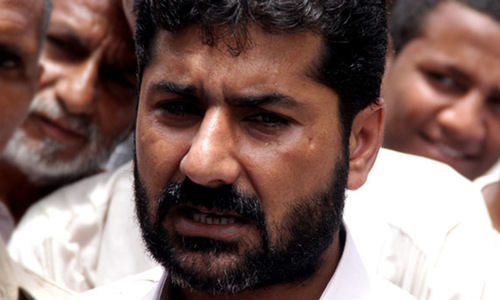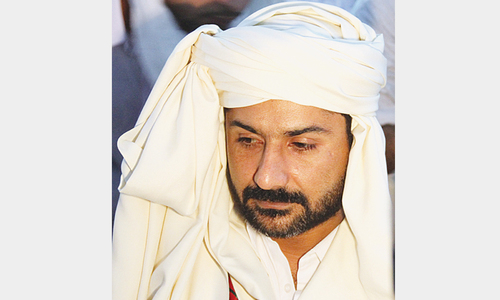KARACHI: An antiterrorism court on Wednesday indicted Uzair Jan Baloch, the alleged chief of the defunct Peoples Amn Committee, in a seven-year-old case pertaining to alleged triple murder of his rival Arshad Pappu and two others.
Uzair Baloch, the alleged Lyari kingpin, with others has been charged with murdering Arshad Pappu and his brother Arafat and an aide Jumma Shera in 2013.
The judge of the ATC-XVII, who is conducting the trial in the judicial complex inside the central prison, read out charges to Uzair Baloch, former Pakistan Peoples Party lawmaker Shahjahan Baloch and three others.
However, all the accused persons pleaded not guilty and opted to contest the case.
Therefore, the judge summoned the prosecution witnesses to record their testimonies against the accused persons on the next date of hearing.
During the hearing, Uzair Baloch reportedly claimed that he never made any confessional statement in court, said the lawyers and prosecution officials.
He also requested the judge to summon the judicial magistrate who presided over the recording of his so-called confessional statement under Section 164 of the criminal procedure code, they added.
Eight accused were already indicted in the present case, but the charge against Uzair could not be framed in the present case due to his prolonged absence.
Uzair is currently being held in the Mitha Ram sub-jail of the Rangers while two others accused persons, Zubair Baloch and Zakir Baloch, are detained in the prison.
Five others — Shahjahan Baloch, Javed Baloch, Mohammad Yousuf, Chand Khan Niazi and Akram Baloch — were on bail.
According to the prosecution, Arshad Pappu with his brother, confidant and 10-year-old son had gone to attend the party of a friend in Defence Housing Authority on the night of March 16, 2013.
The boy came home around midnight and informed his mother that around 20 men in two vehicles came to the flat in the DHA and took away his father and the two others, it added. A case was registered under relevant sections of the law at the Kalakot police station on the directive of the Supreme Court.
Arshad Pappu was booked in around 60 cases, but he was never convicted in any case since most of the key witnesses either did not turn up to testify against him or turned hostile before the courts.
He was released in the middle of February 2012 from a prison in Balochistan following his acquittal in what appeared to be the last case against him pertaining to the murder of Faiz Mohammad, aka Mama Faizu, a transporter and father of Uzair Baloch.
Published in Dawn, August 27th, 2020














































